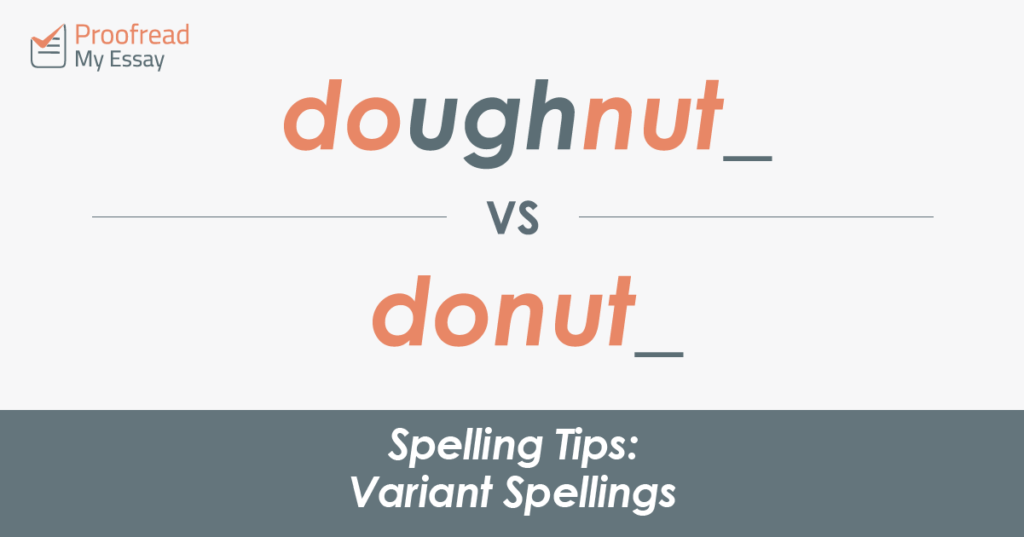Were we paranoid, we’d suspect someone had designed the English language to be infuriating. After all, we have silent letters, unreliable spelling rules and homophones to contend with. Throw variant spellings into the mix, and you can see why things get tricky!
What Are Variant Spellings?
Let’s get specific. Variant spellings occur when a word has more than one spelling. ‘Doughnut’, for example, is now often spelled ‘donut’ instead. Both terms are accepted in modern English.
Some variant spellings come from regional differences (e.g. ‘grey’ in British English vs. ‘gray’ in American English). Others arise from informal language (e.g. when ‘nite’ is used instead of ‘night’). In some cases, though, it’s just a matter of preference.
Common Variant Spellings
We won’t attempt to list all the words with variant spellings here (that’d take a while). But there are some common letter combinations and situations in which variants occur. These include:
- -is-/-iz- – This letter combination pops up in a lot of words (e.g. ‘organise/organize’). Some people claim that ‘-iz-’ is only an American spelling, but both are accepted in British English.
- -ed/-t – When these letters occur at the end of a word, they are sometimes interchangeable. For instance, ‘burned’ can also be spelled ‘burnt’. Some style guides recommend using ‘-ed’ endings for simple past tense verbs (e.g. ‘I spilled the milk’) and ‘-t’ endings for past participles or adjectives (e.g. ‘I am crying over spilt milk’), but this is not a strict rule.
- -st – These letters are sometimes seen at the end of a word as a variant spelling. ‘Among’ and ‘while’, for example, can also be spelled ‘amongst’ and ‘whilst’. Ending these words in ‘-st’ is fine, but it can seem a little formal or old fashioned to modern readers.
All of the examples above are terms where either spelling is accepted in British English. There are plenty of others, however, where there is a strict regional difference. ‘Color’, for instance, is the standard spelling of ‘colour’ in the USA. But while these are variant spellings of the same word, they are not interchangeable: using ‘color’ in British English would be incorrect.
Find this useful?
Subscribe to our newsletter and get writing tips from our editors straight to your inbox.
Working with Variant Spellings
One problem with variant spellings is that spellcheckers often miss them. This may not matter if you’re only using a word once, but it can lead to having inconsistent or accidentally obscure spellings in your work. As such, it’s important to keep an eye out for these terms.
If you want to make sure you’re using the most common spelling for your region, you can also check Google’s n-gram viewer, which lets you see how often each term has been used.
However, the main thing here is consistency. If a word has two spellings, you should try to use one form consistently within a document (using the ‘Find’ function in Microsoft Word can help you check this).
